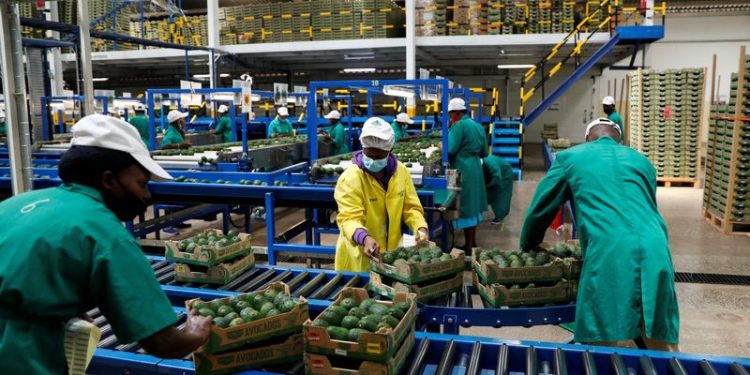The Kenya Plant Health Inspectorate Service (KEPHIS), a government parastatal, outlines procedures for the registration of exporters dealing in agricultural produce, aiming to streamline compliance with international market standards.
According to the agency, applicants must submit a written request to the Managing Director of KEPHIS, accompanied by key documents.
These include a Horticultural Crops Directorate (HCD) export licence, a company registration certificate, a Kenya Revenue Authority PIN, and identification documents of company directors.
Exporters sourcing from farmers or other authorized exporters are also required to present signed contracts or agreements, alongside details of farm locations, acreage, crops under production, and target markets.
Upon receipt of the applications, a system audit shall be conducted within ten working days.
How to Register as an Agricultural Exporter in Kenya
Perishable Goods
For growers and consolidators of perishable agricultural products, the audit process is comprehensive and detailed.
It begins with the auditee demonstrating a thorough understanding of market requirements, backed by documentary evidence.
This is followed by an audit of documented policies and procedures, covering essential areas such as farmer recruitment, calibration of spray equipment, traceability, internal audits, pest management, safety and hygiene of both produce and handlers, as well as waste disposal.
Auditors also verify that these documented policies are actively practiced across contracted farmers, their own farms, and suppliers, by checking schedules and data for planting, weeding, fertilizing, pest control, spraying operations, harvesting, and the sanitation of equipment.
Also Read: How Kenyan Farmers Can Access Agricultural Loans and Grants
The verification process encompasses evaluating pest management systems, approved lists of plant protection products, quality control systems, the competence of on-site technical assistants, the training of sprayers, and the calibration of spray equipment.
Storage facilities for pesticides, protective equipment, fertilizers, and seeds are inspected to ensure proper maintenance and record-keeping.
Waste disposal mechanisms are scrutinized for their effectiveness in safeguarding food safety, the environment, and human health.
Compliance with produce handling and packing facilities is also rigorously assessed.
Fresh Fruits, Vegetables, and Dried Agricultural Products
For dealers in fresh fruits and vegetables, the process requires submission of produce samples for pesticide residue testing at the KEPHIS Analytical Chemistry Laboratory, ensuring food safety before export.
Meanwhile, dealers involved in exporting dried or processed agricultural products undergo a facility inspection focusing on the auditee’s understanding of market requirements, quality control management, good handling practices, sanitation, worker health and hygiene, and pest control programs.
Following these audits, all exporters must undergo training on the Electronic Certification System (ECS), which facilitates export certification and compliance.
Also Read: How Kenyans Can Apply for Govt Fertilizer Subsidy Program
Upon successful system audit and ECS training, the company shall be notified in writing and registered into the ECS (Electronic Certification System).
This will be done as follows:-
- You will visit the KEPHIS website
- Click on online services and choose the option of Electronic Certification System (ECS)
- Click on the Electronic Certification System at the end of the page
- Apply for client Registration
- You will then wait to be given a password so that you can log in to the system as a client.
Follow our WhatsApp Channel and X Account for real-time news updates.






















































![Senator Allan Chesang And Chanelle Kittony Wed In A Colourful Ceremony [Photos] Trans Nzoia Senator Allan Chesang With Channelle Kittony/Oscar Sudi]( https://thekenyatimescdn-ese7d3e7ghdnbfa9.z01.azurefd.net/prodimages/uploads/2025/11/Trans-Nzoia-Senator-Allan-Chesang-with-Channelle-KittonyOscar-Sudi-360x180.png)




















